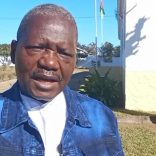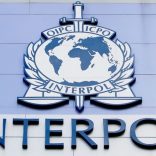Mozambique: Police shoot four dead in Matola - AIM report | Watch
Foreigners lured Cabo Delgado youth with money – civil society

in file CoM
A civil society representative in Cabo Delgado said on Wednesday that the youths involved in the attacks in that province had been lured with money by foreigners who came to propagate “their ideology”, which is contrary to the Muslim religion.
The young people had reportedly started being recruited in mosques infiltrated by foreign extremists, who lured them with money after prayers, Imam Mussa told Lusa news agency.
“They say they were ordered: if they killed someone they received 25 or 50 meticais, if they burned villages they had a reward too,” he added on the sidelines of a conference on economic development organised by the NOVAFRICA nucleus, at the Nova SBE (Faculty of Economics, New University of Lisbon).
Without speculating on the motives of the attackers, for “there is no certainty”, he described them as “evildoers” who were exploited by foreigners from Somalia, Kenya and Tanzania, who realised that there was a strong Muslim establishment in that region and tried to instil in young people their own specific ideology, which “is not Muslim religion”.
“They tried to recruit young people who misunderstood religion and began to instil their ideology,” in mosques which were closed and later reopened after the expulsion of the radical elements, he said.
Imamo Mussa, who has cooperated with NOVAFRICA researchers and local and national Muslim organisations in the prevention of radicalisation, said that mosques were now being managed by the Islamic Council of Mozambique (CISLAMO), which had focused on training.
“What we want is to do is to educate the young to resist this ideology. The main measure is training and education,” he said, adding that the training had been effective and that there had already been cases of young people who gave up joining the insurgents.
Government interventions had also been positive, and there had been a reduction in the number of attacks because of the military presence, he said.
Mussa regretted this “time of pain and mourning” in Cabo Delgado, which had, he said, suffered “calamity after calamity” – alluding to the devastation caused by the passage of Cyclone Kenneth on the island of Ibo, where hundreds of people had sought refuge from the violence.
The Islamic State jihadist group claimed on Tuesday to have killed and wounded Mozambican soldiers on Monday when it supposedly ambushed an army patrol in the northern region of Cabo Delgado.
Mozambique police, however, yesterday denied the attack, claimed by the group as its first in the country.
According to Lusa’s calculations, the wave of violence which began in Cabo Delgado in October 2017 has already killed about 200 people, including residents, alleged attackers and members of the security forces.












Leave a Reply
Be the First to Comment!
You must be logged in to post a comment.
You must be logged in to post a comment.